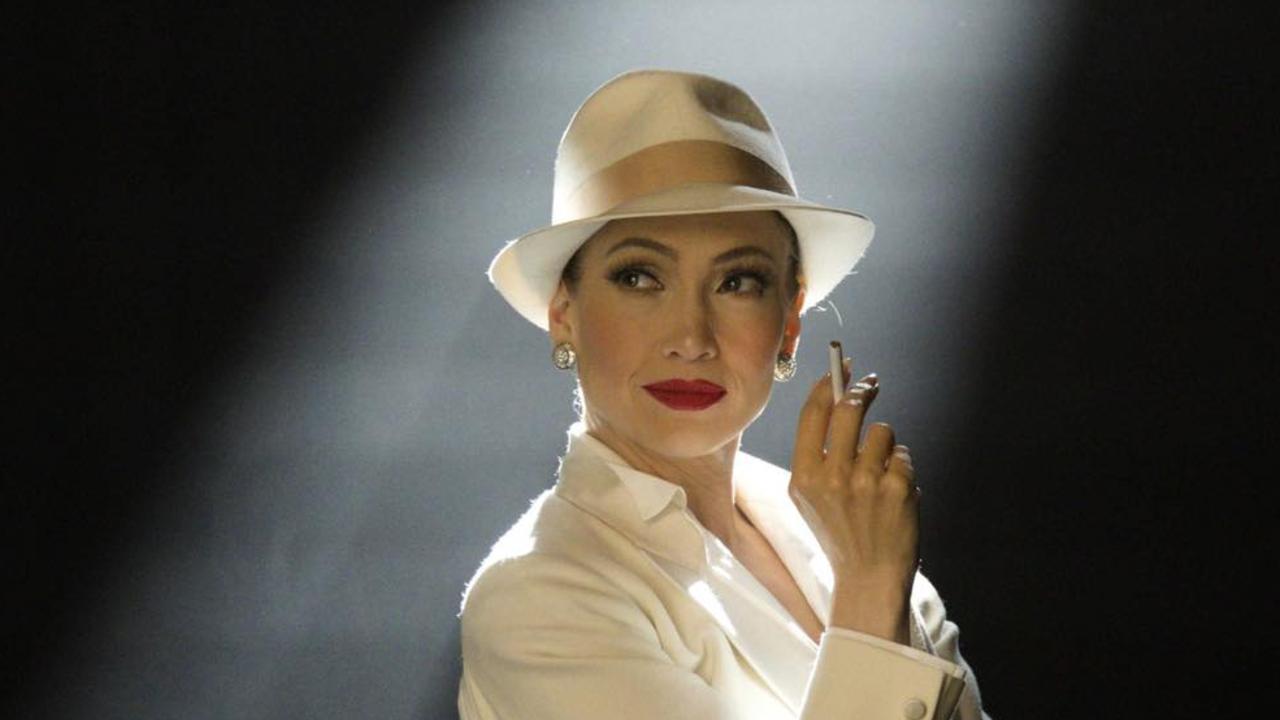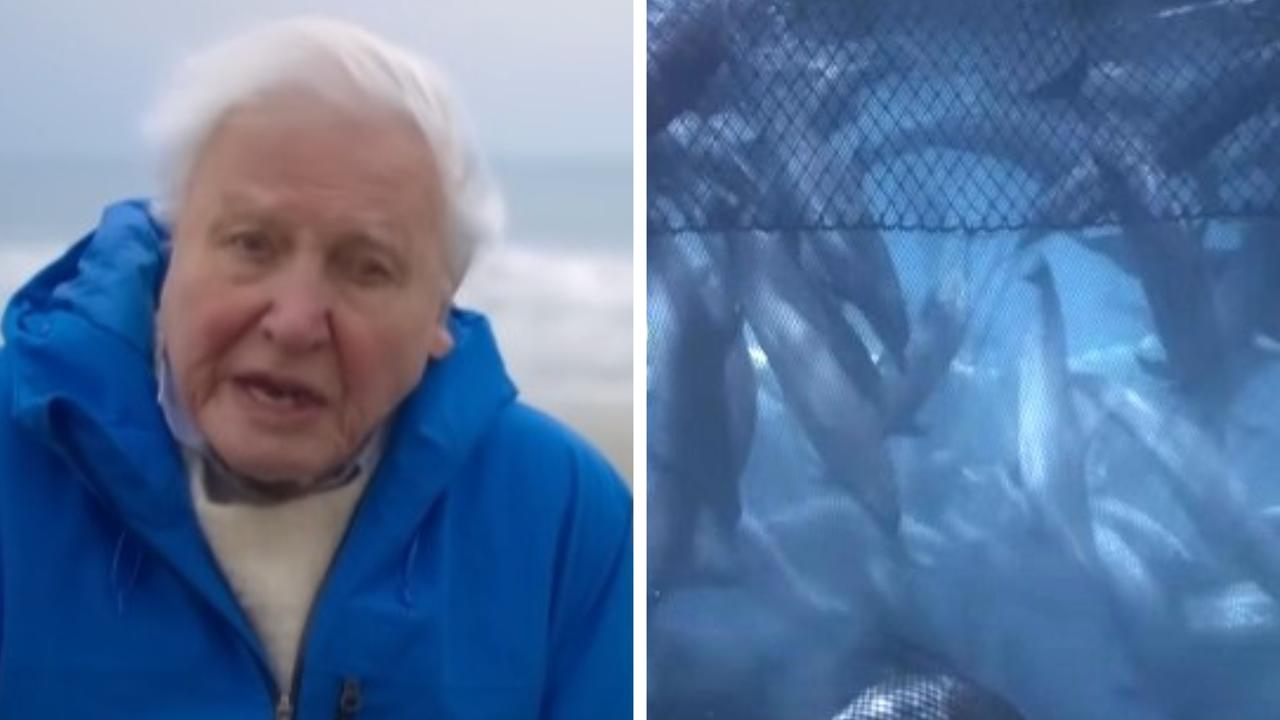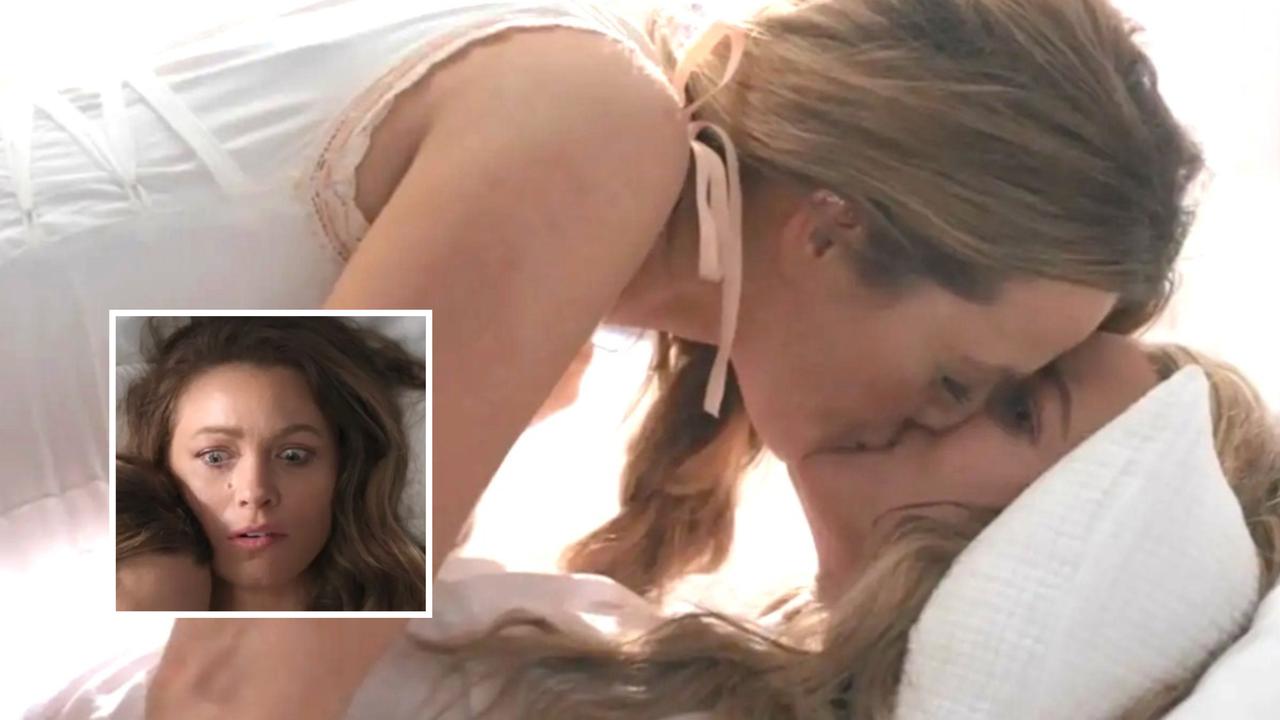The Dig: Director Simon Stone on what 2021 audiences can learn from Sutton Hoo discovery
You wouldn’t think a movie about an 80-year-old archaeological discovery would have much to teach us about our pandemic moment but it does.
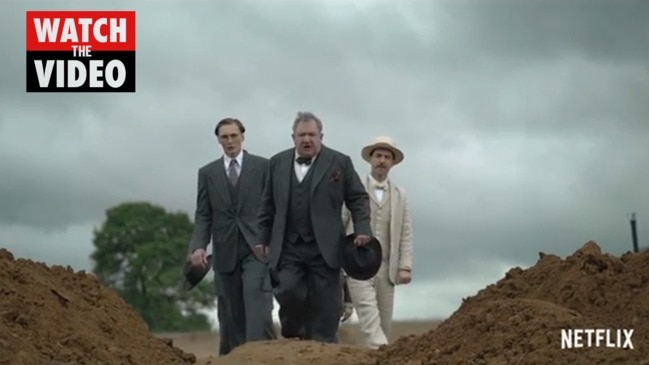
On the surface, there’s little to tie together the story of a 1939 archaeological discovery in England with our present pandemic moment.
But a connection between the two is exactly what the director of Netflix film The Dig, Australian Simon Stone, hopes audiences will find.
The Dig tells the true story of the Sutton Hoo discovery, an immensely significant archaeological bonanza unearthed from what turned out to be burial mounds in Suffolk, right as the UK was preparing for World War II.
“Looking for an artefact from the sixth century while planes are flying overhead and the war is looming seems slightly ostrich-like, to stick your head in the earth and become obsessed with the past,” Stone explained to news.com.au over the phone from his home in Germany.
“But at the centre of the story is that by searching for the lessons of the past, they end up creating a sense of certainly that this too will pass.
“They were entering the worst war that the world has ever seen and yet that too will become a moment in history. Of course, that has a melancholy truth to it, but it’s also incredibly reassuring because what you know is that there will be a future because things change.
“Our history is the story of constant change, and I think for audience watching in the pandemic, it’s also a hopeful message.
“It can feel, and I certainly feel a bit like this, as the longer the lockdowns go, the longer restrictions go, the longer where we live in a world that would have been unrecognisable to us a year ago, the more we stop believing that things will ever be the way that we remembered them to be.
“But there are moments in history that are truly exceptional, where the world changed remarkably and then a certain normalcy returned. And that’s reassuring in a story like this, at a time like this.”
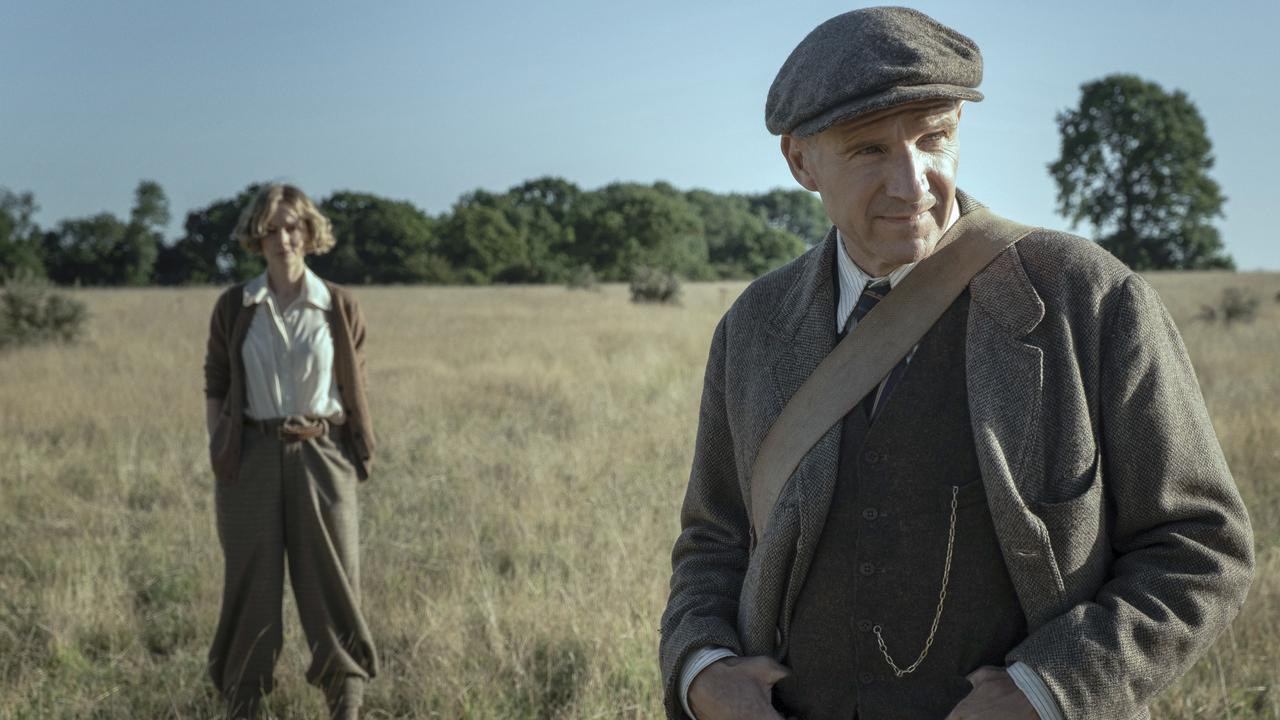
RELATED: The Dig movie review
Stone has been locked down for too long to count in Germany, and perhaps that’s why he’s feeling philosophical about the inevitable transience of tumultuous times.
But it’s also true that the story of The Dig, of this event 80 years in the past, can speak to our present moment, not just in the obvious metaphor of archaeology and all the physical traces of ourselves we leave behind for future generations, but in how we come together for the common good.
Anecdotally, many people in the past year have found the importance of support networks when we find our daily lives changed and disconnected – and increasingly those support networks aren’t just our friends and family, but also the community at large.
For Stone, he sees that as foundational in The Dig.
“I wanted the film to be as much about solidarity and community, and how people can reach across the boundaries of difference – of class difference, of gender difference – and they can find a way to unite in the face of a crisis.”
Starring Carey Mulligan and Ralph Fiennes, plus a supporting cast that includes Ben Chaplin, Lily James and Johnny Flynn, The Dig details landowner Edith Pretty’s (Mulligan) mission to discover what lay beneath mounds on her property.
To that end, she commissioned Basil Brown, a working-class archaeologist without the “correct” fancy qualifications from Oxbridge, to excavate the site. What they find is an intact burial ship dating to Anglo-Saxon times, a discovery that up-ends orthodoxy about culture in the Dark Ages.
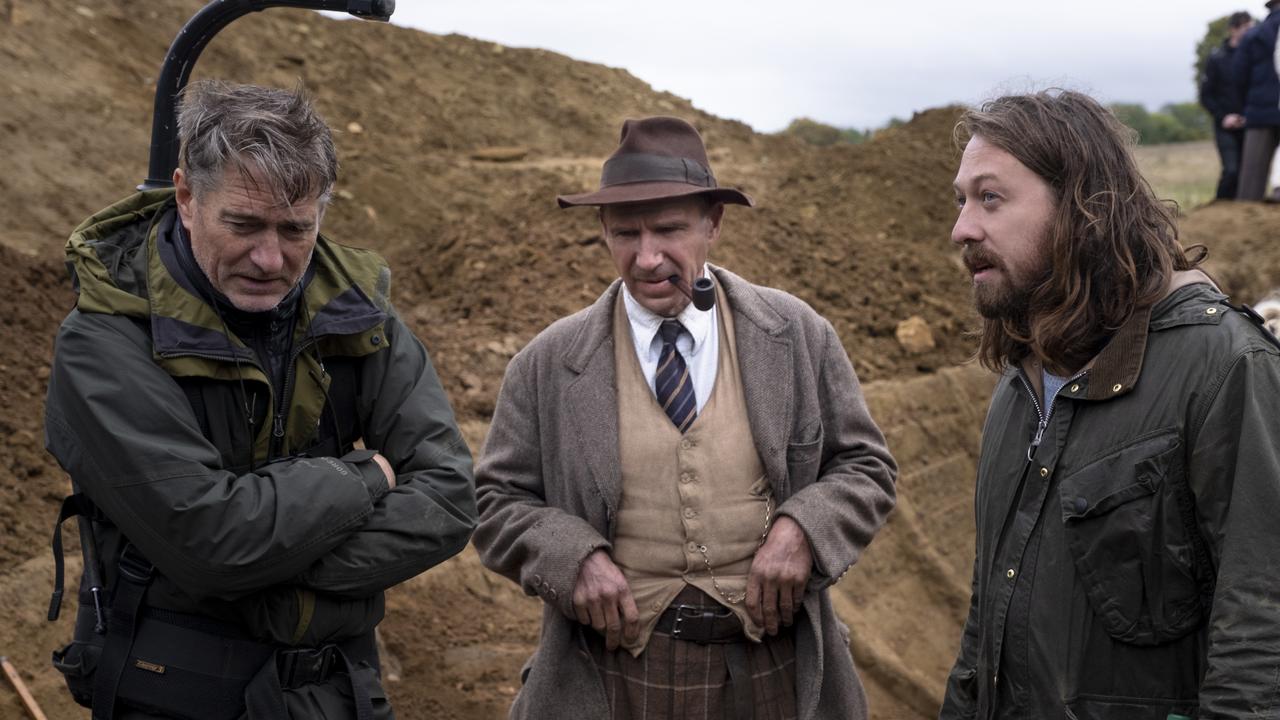
RELATED: Everything new to streaming in February
The Dig is a beautiful film, set in the soft light and wide landscapes of the Suffolk countryside, but it’s the performances from Mulligan and Fiennes that really bring the endeavour home.
Stone was rapt to have acting luminaries in his project.
“When you’re working with people as talented as those two, and actually the whole cast, their level forces your work to be better,” he said. “And you just have to rise to their level and the level that they should expect of their director.
“I, perversely, relish that pressure and I like putting myself in situations where I’ve got these powerhouse people around me, and it forces me to try and get to their level, to try and match what they’re doing on screen.”
The Dig is only Stone’s second feature but for an artist who’s come from the theatre, there’s no staginess to his screen work, which feel cinematic and dynamic. And he’s no neophyte to working with powerhouse actors.
In many circles, he’s considered something of a powerhouse himself, even if some of his theatre work has been seen as disrupting the classics in a way that some establishment folk would consider too avant-garde.
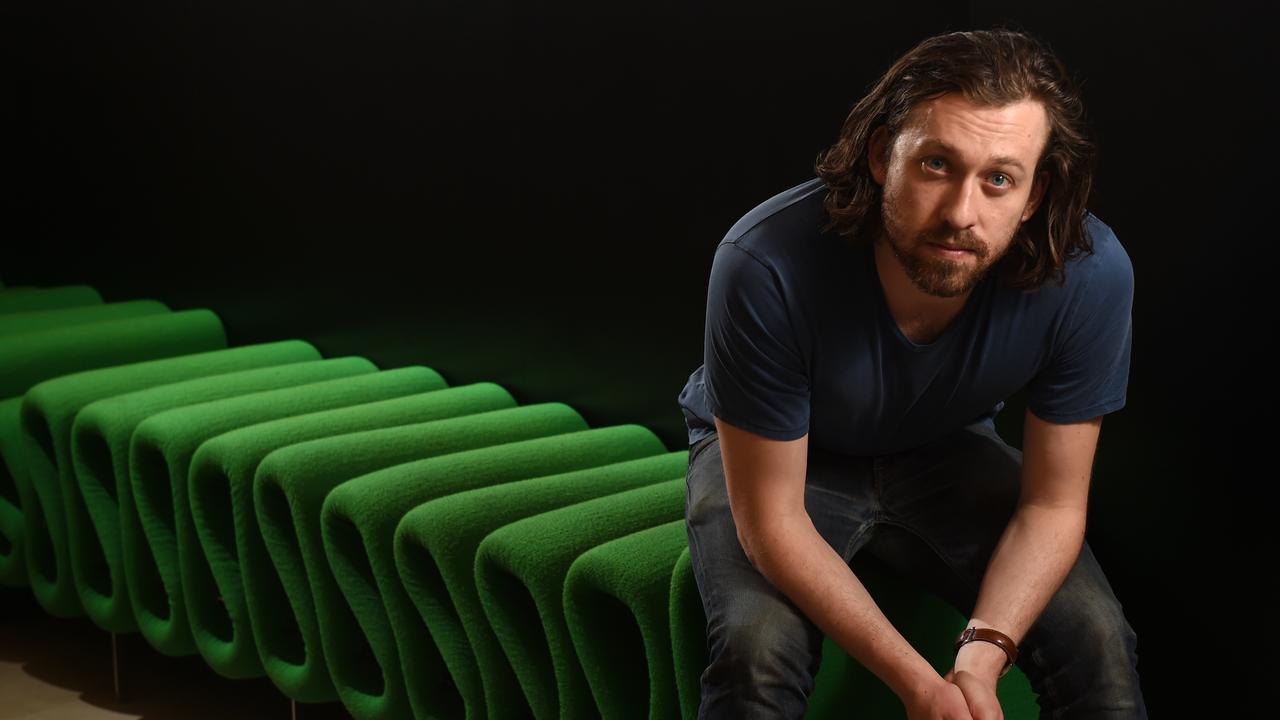
Having founded an independent theatre company, The Hayloft Project, in his early 20s, Stone has been resident director at Belvoir and staged productions at the Sydney Theatre Company and the Melbourne Theatre Company.
After he made his first feature, The Daughter , in Australia with Ewen Leslie, Miranda Otto and Sam Neill, he moved to Europe.
For the past five years, he has worked across the continent, in the UK and in New York, where he directed a modern update of Medea starring Rose Byrne and Bobby Cannavale, which played just before the world went into lockdown.
But even during lockdown in Germany, Stone has made four stage shows, but none of them have gone in front of an audience – yet.
“Who knows when it will ever open?” he wondered. “It’s very strange. I’m very lucky to be working in this situation but it’s also weird to be making theatre for no audience.”
Thanks to state support of the arts in Germany, the industry has remained employed where in other parts of the world, including in Australia in the early part of the pandemic, it has been under immense pressure.
“It’s a really strong argument, especially if you look at Australia as well, for more state support of the arts because then you don’t suddenly have an entire industry unemployed in a moment of crisis.”
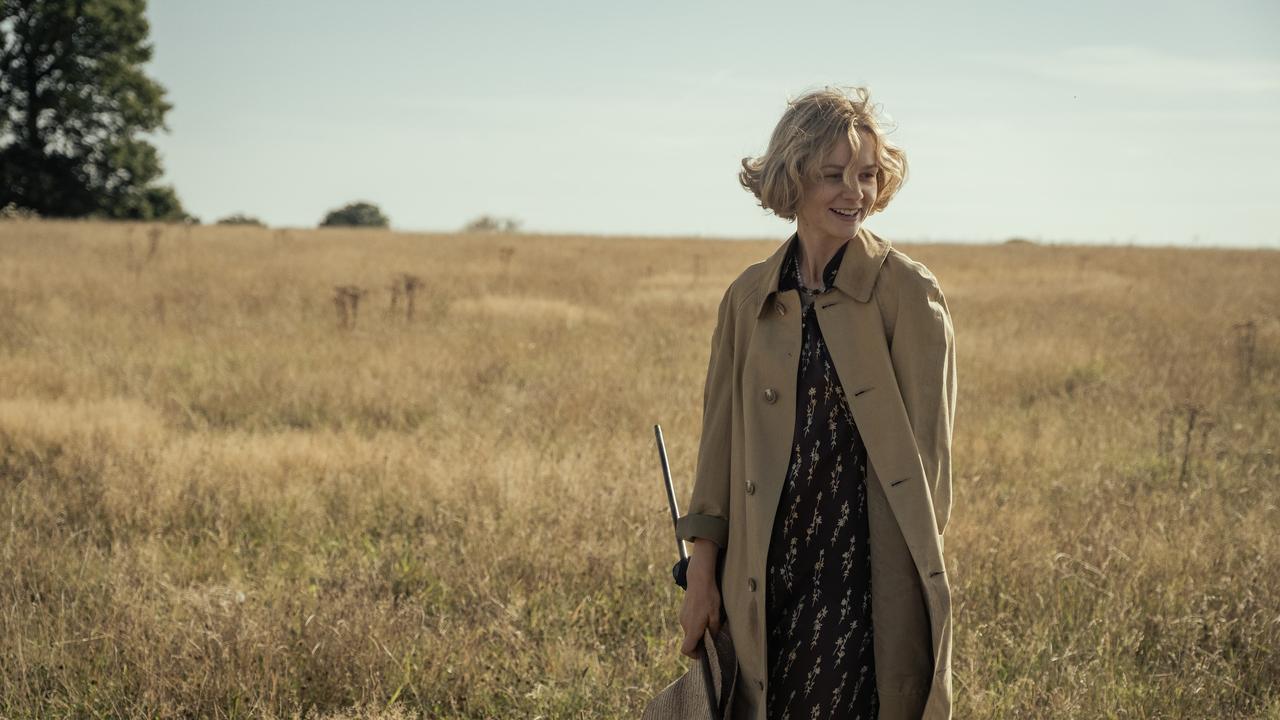
RELATED: A different kind of marriage breakdown in Us
It’s not just that cultural enrichment bolsters societies and civilisations, Stone said it’s also an economic no-brainer.
“This really is the paradoxical thing, how much money entertainment actually makes,” he explained. “It’s a significant cornerstone of the economy and yet people will dismiss it as some kind of hobby that we’ve got.
“You can’t make an economic argument against it but the attitude towards artists becomes really clear when you’re in a crisis because it reveals so much about what underlying assumptions were around before the crisis.
“But what do you do when you go home? You turn on Netflix and everything you’re watching was created by an artist.
“If you stop looking at your phone, stop looking at your computer, stop listening to the radio, see how that would feel, what an epic silence would suddenly fill your life.”
When people are locked down, the value of art and culture suddenly becomes glaringly obvious.
While Stone has been busy mounting theatrical productions that can’t, for the moment, open, he hopes it won’t be five years between his second and third film, as it was between his first two.
Now that he’s more settled in Europe, where he also started working in opera, he wants to step onto another film set before too long.
“I can’t promise anything but I’m excited at the prospect of taking everything I’ve now learnt. Each film you make is such a huge learning curve so I’m really hoping that an opportunity to do a third movie comes soon.”
The Dig is streaming now on Netflix
Share your movies and TV obsessions | @wenleima


